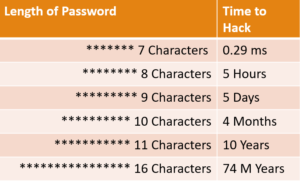Cyber Security
We have recently seen a significant increase in the number of scam emails, hacking attempts and phishing phonecalls that our clients, our suppliers and ourselves have been receiving. A number of our clients and associates have also been subject to IT security breaches that have resulted in significant downtime, data loss and cost to rectify.
As a small-medium business, we understand we have a significant responsibility to ensure that we have put in place steps to minimise the likelihood of data and information falling into the wrong hands.
Over the past 6 months, we have undertaken a complete review of our systems, put in place extra policies and procedures and received expert advice on how we can maximise cybersecurity. While we believe this has significantly minimised the risks of a data breach occurring, we are conscious that new threats are continually arising.
One of the key ways you can help minimise the risks of data or financial loss, is to always be alert to the fact that scams exist and take appropriate steps to protect you and your business.
Protecting Yourself
Here are some general tips put forward by the Australian Competition & Consumer Commission’s (ACCC) ‘Scam Watch’
- Do not open suspicious texts, pop-up windows, click on links or attachments in emails without verifying where it came from – review the ‘sent from’ address carefully, hover your mouse over the link and review the address it is taking you to, call the person who sent it.
- If you receive a call from the ATO that you were not expecting, it is always best to call our office so we can verify what they are saying.
- Do not respond to phone calls or emails asking for remote access to ‘fix or check for a problem’.
- If transferring a payment and the regular bank details have changed, confirm the change with the supplier via a phone call to your regular contact.
- Enable Two-Factor Authentication (2FA) where available.
- Do not use the same password for everything and do not save your passwords in your browser.
- Choose your passwords carefully and consider using an easily remembered passphrase instead of a password (eg: Myfavouritecolourisblue.) Passphrases are much harder to hack than regular passwords.

For further information on how best to protect you and your business from scams please go to the Scam Watch website here. Remember to check the link before clicking it!
If you have any queries please contact your adviser at CHN Partners to discuss this further. We can also provide an appropriate referral should you wish to review your cybersecurity policies and procedures.

